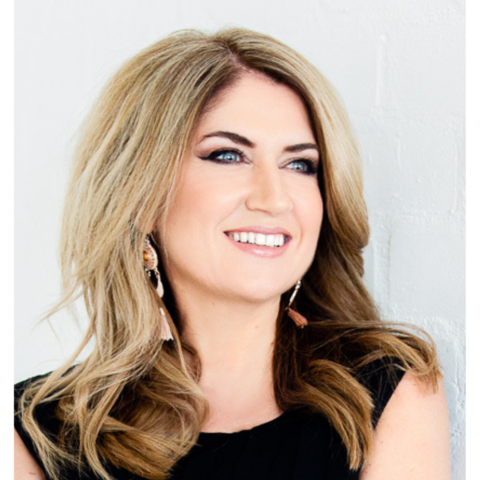By Renee Giarrusso
The workplace has never before presented so many challenges and opportunities for managers and leaders. As we enter the new world with a hybrid work environment in play, this can result in working longer and more intense hours often with stifled communication, connection and collaboration. Along with this, we are juggling people issues, strategy, systems, skills, budgets, structure and so much more. It’s no wonder many of us are feeling overwhelmed, out of control and even reaching the point of burn out. The World Health Organization recently deemed burnout as a classifiable workplace phenomenon.
Many factors lead to energy depletion and burnout, including unclear role expectations and purpose, dysfunctional workplace dynamics, work-life-imbalance, job function overload, extremes of activity and lack of social support. To avoid burnout, we are advised to ‘self-care’. This is a concept many managers and leaders struggle with, fearing it comes at the expense of self-development. Too often self-care is put on the back burner and seen as self-indulgent.
The key to striking a balance between self-care and self-development is knowing how they differ and then adopting the habits and behaviours that will serve you and what you need right now.
What is self-care?
Self-care is about engaging in habits, behaviours and activities that allow us to feel more balanced and reduce stress.
We need to tap into the four pillars of our wellbeing – physical, emotional, social and spiritual – to ensure balance. Having deep awareness of when and how to re-energise is key. It’s important to reflect, refocus and recharge to restore our energy.
There is distinct need for managers and leaders to incorporate self-care strategies that in turn will restore depleted energy, help reduce stress and assist us to perform at our peak in the age of distraction we live in.
A few key strategies include:
Setting boundaries
When you say yes to one thing, you are saying no to something else. Not setting boundaries can set you off course. Having boundaries both personally and professionally helps you understand what you do and don’t stand for.
Practising self-compassion
Self-compassion opens the door to acceptance and is about directing love and compassion at yourself. Kristen Neff, a researcher of self-compassion, highlights its many benefits, including a decrease in anxiety, stress and depression, and an increase in life satisfaction, resilience and overall happiness.
Living with purpose
Knowing your true purpose can lead to greater health and wellbeing, and exceptional performance due to role clarity. Knowing the bigger picture of why you do what you do can energise you deeply. Purpose springs from your identity – it’s your ‘why to fly’.
Doing what lights you up
iWAM profiling tool research concludes that motivation can predict up to 65% of your success in a role, so it’s powerful to know what motivates you. Tap into what brings you joy, in and outside work and your energy levels will rise – even when you are feeling depleted.

Positive thinking and practising gratitude
What you tell yourself influences how you feel and whether you do or don’t act. Where our thoughts go, our energy flows. If you’ve been thinking disempowering thoughts or focusing on what you don’t have, your energy will reduce; you may feel drained and flat. Focus on what you do have and foster an attitude of gratitude.
Fuelling yourself
Regular physical activity helps you better deal with stress. As little as 15 minutes a day’s exercise can have significant positive health effects. A good night’s sleep restores wellbeing and has an immediate positive effect on your hormones, exercise performance, brain function and energy. If you can exercise outside, even better.
Practising mindfulness
Mindfulness is being present and fully engaged in whatever you are doing. In a work setting, mindfulness may involve facing situations with openness and patience, and without judgement. Any mindful practice needs to consist of three parts: your intention and what you hope to get from it; the attention you are paying to your experience; and the attention you give to certain attitudes, such as curiosity and acceptance.
What is personal development?
Our self-growth is vital as a manager and leader as it projects us forward and enables us to contribute at an optimum level – and create future leaders in the process. Many factors trigger growth: facing a crisis, learning something new, going through change or upskilling in a particular area. Strategies to ensure continuous growth and personal development include:
Reframing struggles as growth opportunities
I talk about this a lot in my new book Gift Mindset; reframing is a technique to help create a different way of looking at a situation, such as reframing the word ‘challenge’ to ‘opportunity’. This simple reframe can enable you to focus on what you can do, rather than just seeing a situation as negative or hard.
Adopting a bursting mindset
By believing you can grow and continue to improve yourself, you become receptive to more growth. Align your priorities with your values and goals by making sure that what you are looking to grow is relevant to your needs and direction. Build on your strengths and develop in the areas that could improve your leadership.
Finding a coach or mentor
International Coaching Federation studies showed that 70% of executives receiving regular coaching improved their work performance, and 72% said it impacted their communication skills positively. Be open to collaborating on your success with someone who fits with your needs, and change mentors and coaches regularly to gain new insights and learnings.
Making self-growth a priority
Never stop learning and educating yourself. Personal development starts with self-discipline, and a great way to do this is to create new habits around your growth. Read books, listen to podcasts, study, attend webinars, contribute on social media and go to association events.
Renée Giarrusso, author of Gift Mindset (Major Street Publishing, 2021) and Limitless Leadership is a communication and leadership expert. She is a speaker, trainer, mentor and professional coach (PCC) who works with leaders, teams and organisations to energise mindset and accelerate leadership and communication to lift performance and create collaborative and connected cultures.


